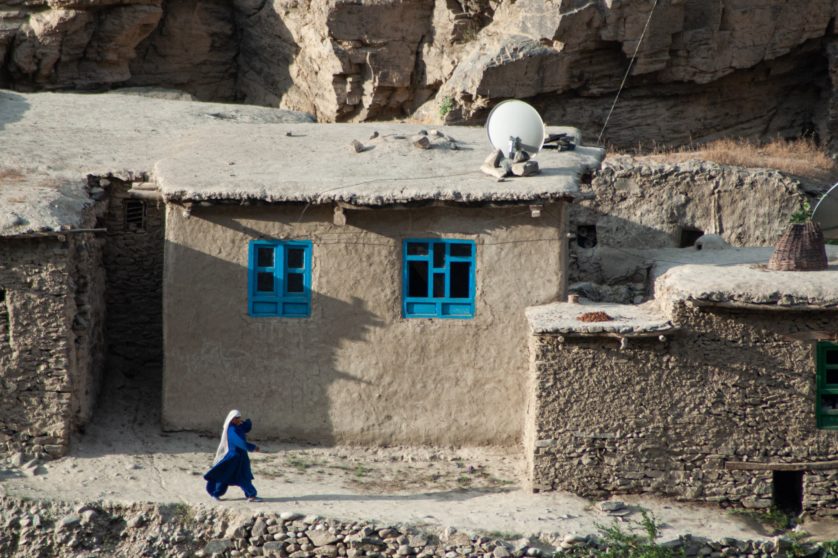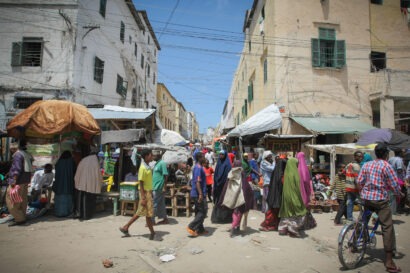“The Taliban tax everything. They get money from the vehicles that cross the district or are going from one district to another. They collect tax on the crops of the farmers,” – a resident of rural Faryab Province, Afghanistan in February 2019.
While we commonly associate taxes with the state, in many parts of the world it is armed groups who demand levies from truck drivers, charge annual fees to shopkeepers, and tax factories and farmers. Such practices might easily be explained as motivated by greed, or the need for revenues to fund an insurgency.
However, our recent study argues that revenue is only one of several motives that explain why armed groups tax. A desire to reinforce ideology, exercise control over populations, and build legitimacy domestically and internationally can be just as important motives for armed group taxation.
Reinforcing ideology
Even though taxation may appear technical, it is deeply political and shaped by ideology. Ideology may determine that certain goods are taxed because they are considered to be harmful, while ideology may shape the language that is used to frame taxes and as a result, taxes allow armed groups to impose and perform their ideology.
Amongst Islamist movements, for example, taxation is often framed in Islamic tenets and language, as with the Taliban or al-Shabaab. Other armed groups link taxation to their revolutionary ideology, as with the Communist Party of the Philippines-New People’s Army’s ‘revolutionary tax’ in the Philippines. In addition, armed groups use taxation to incentivise certain behaviour, in line with their ideology.
For example, Islamist groups may tax alcohol or narcotics while socialist groups may tax luxury goods and business elites.
Exercising control
Another important motive for armed group taxation is that it enables groups to exercise authority and to control local populations in different ways. From an institutional perspective, taxation generates a need for information about the population, which in turn creates a justification for building an apparatus that collects and manages this information. More practically, taxation is often closely linked to controlling the behaviour and movement of populations.
For instance, the M23 group in Congo’s North Kivu province operates checkpoints not only to collect taxes but also to control bottlenecks of both trade and the movement of people, exercising what Peer Schouten calls a ‘logistical form of power’. Beyond civilian populations, taxation often enables armed groups to exercise influence over international actors, with development and humanitarian assistance taxed by armed groups such as the Islamic State, al-Shabaab, and the Taliban.
Projecting authority, developing institutions, and building legitimacy
Perhaps counter-intuitively, taxation can also help armed groups enhance their local legitimacy. As taxation is often understood as an activity reserved for the state, mimicking this “state” practice can be a way for an armed group to legitimise its rule.
This can manifest through issuing official-looking receipts or otherwise imitating the state bureaucracy. Furthermore, taxation enables an armed group to provide public services that a population typically expects and demands of a ruling authority, creating local-level support and legitimacy. It can also require and enable armed groups to develop bureaucratic institutions to help in their tax collecting efforts, further bolstering their state-like projections.
Concerns about local-level legitimacy may also shape the nature of taxation practices of armed groups. For instance, the Kachin Independence Army in Myanmar cannot openly encourage and tax opium production, even if it could be a promising source of revenue. Instead, the group taxes what is locally accepted, including vehicles, shops, and other businesses.
A crucial form of income
It would be wrong to conclude that armed group taxation has nothing to do with revenue generation. Taxes are a crucial source of income for armed groups, and in some cases even the most important form of income.
Nonetheless, there is much more to it, with multifaceted motivations underpinning the practice and the nature of taxation that emerges. While our research highlights the diversity of armed group taxation strategies, underpinned by different drivers and motives, more research needs to be done to unpack these dynamics and to develop a more structured understanding of the taxation strategies of different types of armed groups.
The findings of such research could help policymakers engage with armed groups to mediate peace agreements, advocate for human rights, and better deliver aid into areas under armed groups’ control or influence.



